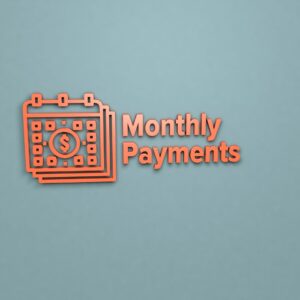Like I wrote about a couple weeks ago, interest rates are decreasing. They aren’t plummeting to 2020 levels, but they are decreasing. At the time of this writing, the average interest rate on a 30 year mortgage is 6.5%.
Disclaimer
Disclaimer before I get into the details of interest rates. At the time of this writing, I have an active real estate license in the state of California. This post is not intended to solicit business, it is for educational purposes only.
The Last 15 Years of Interest Rates and Mortgages
The last 15 plus years has seen interest rates at a historic low. Here are the approximate numbers in four year increments to illustrate the point:
- 2008: 6.03%
- 2012: 3.66%
- 2016: 3.65%
- 2020: 3.10%
- 2024: 6.8%
Source: Bankrate.com
These are historic lows and rates that we may not see in our lifetimes again.
Why Do Interest Rates Decreasing Matter?
Interest rates decreasing can make a huge difference in your monthly payments. For example the principal and interest for a house with $900,000 financed at 3.5% is $4,041. While that same house financed at 7% would have monthly payments of $5,988. That’s almost $2,000 and a complete game changer.
Are Interest Rates Permanent?
Interest rates are not permanent, you can refinance at any time. If you have a good rate though, the best advice for the majority of people is to keep that low rate. More than likely they aren’t going back down to 2020 levels so having a low interest rate is an asset.
Those with interest rates north of 6% will want to consider refinancing if rates go lower than that.
How Do Interest Rates Impact the Housing Market?
The lower the interest rates, the more buying power for the customer. To give context, $600,000 financed at 3% has a significantly lower monthly payment than $500,000 at 7% interest.
As a result, what also often happens when interest rates are decreasing is buyers are usually willing to pay more because their monthly payments are lower than at the higher price.
The Big Question: Is Now a Good Time to Buy a Home?
On to the big question. With interest rates decreasing, is now a good time to buy a home? To answer this loaded question, here are five questions to ask yourself.
Number 1: Do I Want to Own a Home?
This is the easiest and most simple question on the surface, but there are many layers to it when you dig deep. That question is do you want to own a home?
If the answer is a hard no, congratulations, you have completed the exercise and you can skip the rest of this piece. If your answer is yes or maybe, keep reading.
There is a lot that goes into owning a home: maintenance, capital expenditures, mortgage payments due every month, and everything else that goes into owning something. Getting into home ownership isn’t something to take lightly.
If you know you want to own a home, you can start to formulate a plan to buy one. Maybe you’re ready now or maybe you need to pay down some consumer debt first and save up at least enough for five to ten percent down, ideally more. Either way, if the answer is yes, you can start to plan as you have some clarity.
Number 2: Will I Be Staying in This Area for the Foreseeable Future?
No matter what is happening with interest rates, this is a question you should be asking yourself. If the answer is less than two or three years it makes the decision easy: don’t buy unless you are going to convert the property to a rental.
If you’re going to be in the home for around five years, you’ll have something to think about. There are pros and cons to buying when you’ll only be in the house for that amount of time. Of course, if your plan is to convert it to a rental, there is nothing wrong with living in the house for a few years and then renting it out.
Longer than six or seven years and there’s a lot of arguments to be made to buy. Seven or more years is a long time and those are years you could be building up equity and paying down some of the loan. Plus it gets you in the game so that if prices do rise, you’re not left behind.
Number 3: What Are the Average Rents Versus Average Prices to Buy?
The first two questions were tied to emotions, now here comes the math. It’s important to do a side by side comparison of renting vs owning.
If there’s a huge price gap between renting and owning, you likely would be better off renting. However, if the gap is minimal or rents are rapidly increasing, you will want to highly consider buying.
For example, a city where the median price of a home is over a million dollars but the average rents are under $3,000 per month. To buy a million dollar home, you’d have to do the following assuming interest rates are at 6.5%
- $200,000 down (could put less down but would have higher payments)
- Principal and interest: $5,057
- Property tax: $1,042 (1.25% rate)
- Home insurance: $500
- Total: $6,599
In this scenario, it’s over $3,500 per month more to buy a house plus you’d have to put $200,000 down (or go with less down and have higher payments). This is a significant difference and needs to be factored in.
Part of the equation also needs to include more than just prices today. Using the same numbers as above, if you are planning on being in the house for multiple years, principal and interest is a fixed cost whereas rents will increase multiple times. Eventually rents will pass the cost of ownership, it’s a matter of how quickly and by how much.
If you’re looking for a hedge against inflation, buying is a good option because it protects against rent increases. You’ll still have property tax increases and insurance costs but you will be protected against large rent increases, something many people experienced after 2020.
Number 4: How Much is My Monthly Payment Going to Be?
I’m a proponent of paying for everything in cash except real estate because it’s such a large purchase. The average person waiting to save up the cash would never be able to because the purchase price is so high. So you’d be sitting on the sidelines for years on end.
When you finance real estate, you have to make the monthly payment work for you. Too high and you’re going to be “house poor” and working just to make the house payment. Most money experts recommend housing costs are less than 35% of your income.
I recommend the same, and the lower the better. Calculate what your monthly payment is going to be and work from there. Make sure to include the following:
- Principal and interest
- Taxes
- Insurance
- Maintenance
- Capital expenditures
- HOA fees
- Meloo-Roos
You’ll also want to carry extra cash for unexpected expenses beyond these items. This can be embedded into your emergency fund.
Number 5: What’s the Long Term Prognosis For the Area I’m Buying?
Big picture thinking here. What’s the long term prognosis for the area you’re thinking about buying? Factors to consider:
- Population growth trends
- Economic growth
- Companies moving in or out of the area
- Foreclosures and other real estate activity
- New construction trends
These big picture items will all give you clues about the long term prognosis of an area. If there are a bunch of people moving away to another area of the state or another state altogether, find out why. This might not be the best area for you.
Conversely, if a bunch of people are moving to the city, that’s a sign that it’s developing and will be a good long-term hold.
Conclusion
There’s a lot to consider when buying a home other than interest rates. The interest rates play a big part of it because it will impact your monthly payment, but it’s just one of many factors.
There are so many other things to consider, especially if it’s a home you’re going to be living in, and not renting out.
What things are important to you in a home?








